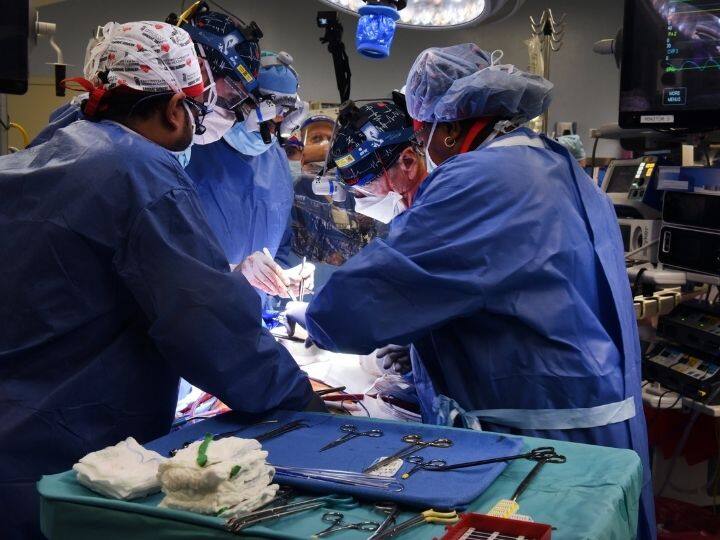In A ‘Historic’ First, Doctors Perform Transplant Of Pig Heart Into Human. Patient Doing Well
Doctors at the University of Maryland Medical Center in Baltimore conducted a 'historic' surgery this week, by transplanting a genetically modified pig heart into a patient with terminal heart disease

New Delhi: Doctors at the University of Maryland Medical Center (UMMC) in Baltimore, US, conducted a 'historic' surgery this week. The surgeons, who are faculty at the University of Maryland School of Medicine (UMSOM), transplanted a genetically modified pig heart into a 57-year-old patient with terminal heart disease.
In a statement, UMMC said that the first-of-its-kind transplant was the patient’s only option for survival after being deemed ineligible for traditional transplant, at the UMMC, as well as other leading transplant centers. Three days after the historic surgery, the patient is still doing well, the statement said.
The surgery marked the first time that a genetically-modified animal heart can function as a human heart without being immediately rejected by the body.
David Bennett, the patient, is being monitored carefully and will be under supervision for a number of weeks. This is to determine whether the transplant provides lifesaving benefits.
“It was either die or do this transplant. I want to live. I know it’s a shot in the dark, but it’s my last choice,” Bennett was quoted as saying in the statement, a day before the surgery was conducted.
The Surgery Received EUA From FDA
The surgery received emergency use authorisation (EUA) from the US Food and Drug Administration (USFDA) on New Year’s Eve, the statement said.
ALSO READ: Severe Depression Affects Men & Women Differently? New Study Explains Why
The USFDA granted EUA through its expanded access or compassionate use provision, which is used when a product, in this case, the genetically modified pig’s heart, is the only option available for a patient suffering from a serious or life-threatening medical condition.
Quoting Bartley P Griffith, MD, UMSOM, who surgically transplanted the pig heart into the patient, the statement said this was a breakthrough surgery and a step closer to solving the organ shortage crisis. He added that there are simply not enough donor human hearts available to meet the long list of potential recipients.
He said that the doctors at UMSOM were optimistic that the first-in-the-world surgery will provide an important new option for patients in the future.
ALSO READ: This Ingredient In Your Toothpaste Can Wreak Havoc In The Gut, New Study Finds
Xenotransplantation, the process of transplanting animal organs, could potentially save thousands of lives but does carry a unique set of risks, including the possibility of triggering a dangerous human response. Immediate rejection of the organ, with a potentially deadly outcome to the patient, may be triggered by the immune response.
Xenotransplants were first tried in the 1980s. However, it was largely abandoned after the famous case of Stephanie Fae Beauclair in California, who was a baby born with a fatal heart condition, and had received a baboon heart transplant, but had died within a month of the procedure, as her immune system rejected the foreign heart.
Check out below Health Tools-
Calculate Your Body Mass Index ( BMI )
Calculate The Age Through Age Calculator
Related Video
Southern Rising Summit 2024: How Important is Self-Awareness? Insights from Anu Aacharya | ABP LIVE






































